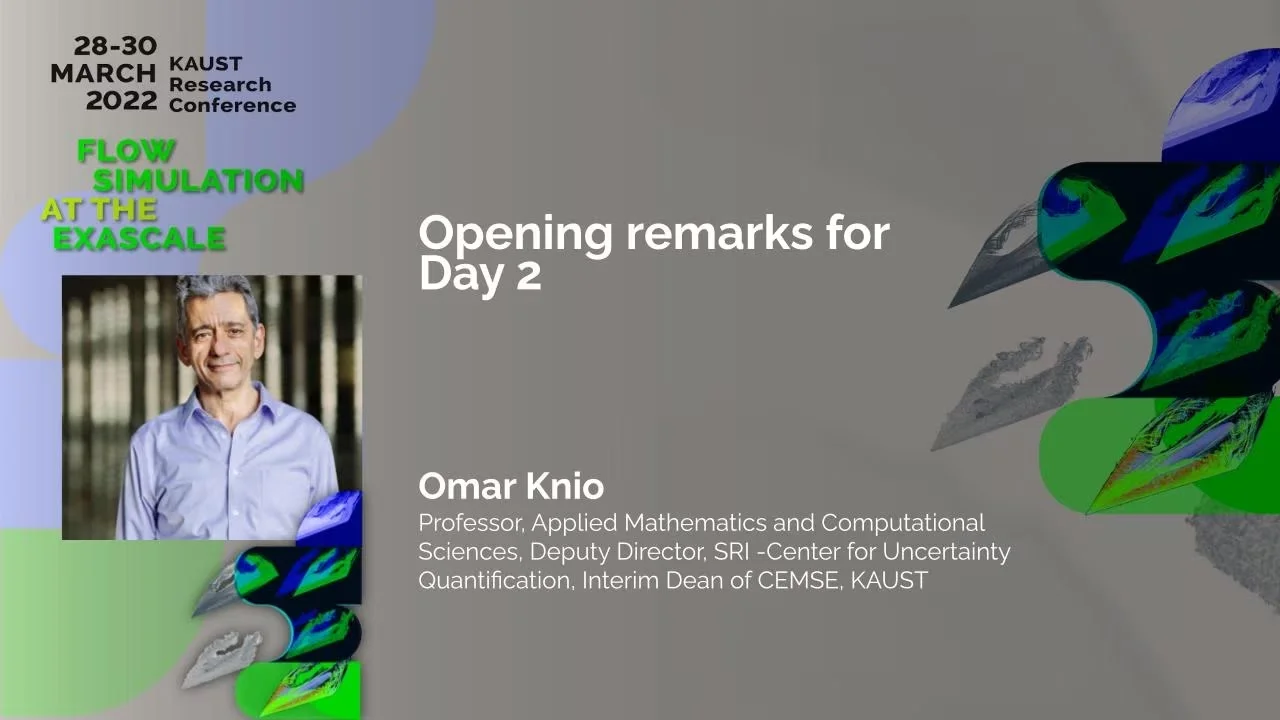
Omar Knio, Dean of CEMSE, Opening remarks
Overview
Opening remarks for the 2nd day of the conference.
Brief Biography
Omar Knio is Professor of Applied Mathematics and Computational Science and Principal Investigator of the Uncertainty Quantification Research Group at the King Abdullah University of Science and Technology, Saudi Arabia
Education and early career
Knio earned his Bachelor of Engineering degree from the American University of Beirut, and his S.M. and Ph.D. Degrees in Mechanical Engineering from M.I.T. After a period as a Postdoctoral Associate at the Department of Mechanical Engineering at M.I.T., Knio joined the Mechanical Engineering Department at Johns Hopkins University, as Assistant Professor and later Professor. He also served as Director, Uncertainty and Risk Thrust at Duke University, where held the position of Edmund T. Pratt Jr. Professor of Mechanical Engineering and Materials Science. Knio also held visiting positions at RWTH Aachen, Ecole Centrale de Lyon, Université du Havre, and FU Berlin.
Areas of expertise and current scientific interests
Knio’s research interests include uncertainty quantification, Bayesian inference, computational fluid mechanics, combustion, oceanic and atmospheric flows, turbulent flow, physical acoustics, energetic materials, microfluidic devices, dynamical systems, asymptotic techniques, multi-resolution methods, high-performance computing, optimization under uncertainty, and data-enabled predictive science.
Career recognitions
Knio is the recipient of the Friedrich Wilhelm Bessel Award of the Humboldt Foundation, the R&D100 Award, and the Distinguished Alumnus Award from the American University of Beirut.
Honors and Awards
- R&D 100 Award, 2005.
- Distinguished Alumnus Award, American University of Beirut, 2005.
- Friedrich Wilhelm Bessel Award, Humboldt Foundation, 2003.
Professional and editorial activities
Knio current serves as Associate Editor of SIAM/ASA Journal on Uncertainty Quantification and of Theoretical and Computational Fluid Dynamics.
Why uncertainty quantification?
UQ is the end-to-end estimation and analysis of uncertainty in models and their parameters and in model predictions. It plays a fundamental role in the assessment of confidence in predictions and forecasts; validation of scientific and engineering models; model selection and calibration; assimilation of observational data; design optimization; as well as the use of predictions for decision support. The UQ research group focuses on the development of state-of-the-art methods and algorithms, and their implementation to complex problems involving geophysical fluid dynamics, engineered thermo-fluid systems, and optimization under uncertainty.
Why KAUST?
The vision, the faculty, the students, the resources, and the high-impact opportunities.
